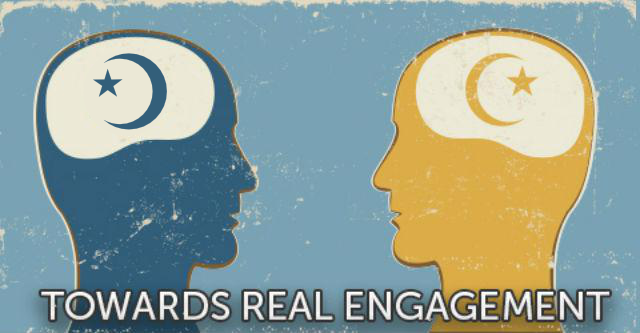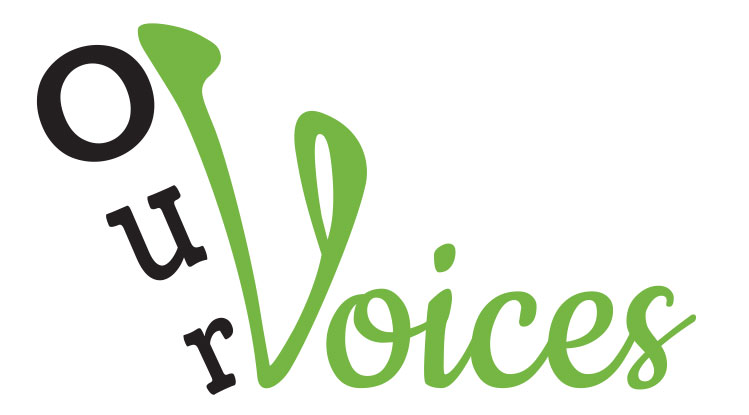I am writing this in response to Adam Sitte’s The MLI Controversy: We Are Family!, a recent article published at altMuslimah. Sitte writes “This episode is a data point in a growing trend within the Muslim community — the suppression of dissident voices by an increasingly belligerent social media hegemon.”
Although Sitte is clearly not a MLI proponent, his focus on vitriolic detractors online erases the majority of critics from the conversation, many of whom are not on social media. Such framing is not productive for true healing and reconciliation.
I believe Sitte means well and he would like the conversation to move us forward as a community. He is trying to be objective; however, he does not go far enough in his exploration of conflict resolution. He argues that opponents of MLI launched ad hominem attacks against the proponents and participants which fueled the toxicity online. Yet, I have read comments and posts by participants of MLI who have questioned the intentions of critics and cast aspersions on the character of several outspoken individuals, even those who attempted to engage in civil conversation. He asks us all to play nice, listen to the proponents of MLI in an attempt to be sisterly and brotherly to one another. But in this attempt to be fair Sitte places the onus on the community without acknowledging the secrecy MLI participants have maintained since the first cohort was established — it was and still is unclear what exactly is the purpose of MLI, who participated and why, and what the Muslim, let alone, Palestinian community is supposed to gain from such an initiative.
We, as a community (even as a family), should be able to express our grievances and put pressure on individuals and organizations that perpetuate harmful practices, especially against our underprivileged and marginalized members. Ngọc Loan Trần wrote about “calling in” as a way of holding each other accountable. Tran writes, “I want us to use love, compassion, and patience as tools for critical dialogue, fearless visioning, and transformation.”
This transformation, which it seems Sitte is looking for as well, will not happen as long as we are creating roadblocks to authentic communication. Drawing from theories of abuse and interpersonal relationships, the tactics used by MLI proponents reflect the pattern of Deny, Attack, Reverse Victim, Offender (DARVO). While the DARVO framework was developed to talk about sexual abuse, it is also a common pattern we see in anti-racism work. Of the few MLI participants who have come out, so to speak, we see a common DARVO pattern — denial that their actions caused harm, personal attacks against individuals who raised concerns about the program, and then reversal of their role to the true victims being persecuted by BDS supporters.
I would characterize the current discourse as also being stuck in a drama cycle. The drama cycle is a psychological and social model in which people often play one of three roles: the victim, the persecutor, or the rescuer. The drama cycle and DARVO tactics are not helpful in reconciling us as a community as they further marginalize Palestinian Americans who are routinely silenced in the United States. I fear that Sitte’s piece might read to some as playing the role of rescuer to MLI particpants’ apparent victimhood, derailing the conversation that really needs to happen.
I understand the pain that leads to people to lashing out angrily and I understand the pain of being criticized publicly and shamed. I denounce name-calling, verbal abuse, harassment, death threats, and defensive posturing. These are against the spirit of Islam. I do not advocate boycotting individual Muslims, as I believe that is against the Qur’an. Many individuals are calling for a boycott of institutions that normalize Zionism and the oppression of Palestinians. They are asking Muslims not to support platforms that advance MLI’s agenda. Under no circumstances should we dissociate from our brothers and sisters, even if their opinions offend us. However, if we want to move forward, we must acknowledge the real grievance here and recenter our focus on Palestinian voices.
In the past, I have written about Solving Discord and the Rights of Brothers and Sisters in Islam, but over time I have begun to modify my views as I have seen marginalized members of the community repeatedly silenced under the banner of unity within our community. Some people have asked whether mediation would be helpful for addressing the toxicity of the discourse. As an anti-racist organizer, healing and reconciliation is central to my intra-Muslim racism work. At Muslim Anti-Racism Collaborative (Muslim ARC), a human rights education organization that focuses on racial discrimination within Muslim communities, we utilize the communication theories developed by Marshall Rosenberg on non-violent communication (NVC). Often described as a language of compassion, NVC offers the tools to communicate in a way that deepen connections with ourselves and others. Rosenberg’s work in amending our relationships with people who have offended and have been offended by discriminatory behavior is especially useful in this discussion.
How do we move forward? Let us return back to Sitte’s statement, “The pain MLI unearths is neither fabricated nor irrational, and to many it understandably cuts deep. Yet, much of the public defense of MLI makes no attempt to engage those sentiments, inappropriately dismissing that pain as irrelevant.”
Moving forward requires an acknowledgment of this pain. MLI critics have been fairly clear about what they need. Apologizing would be a good start and there are ways to apologize with dignity. Rosenberg offers four steps for reconciliation and healing:
- Actor demonstrates empathy for the receiver
- Actor mourns the impact of the conduct
- Actor expresses the needs he/she was seeking to meet in the conduct that was distressing to the receiver
- Agreement between the parties that would restore the relationship
So far, I think that the vocal MLI proponents have yet to do 1 and 2.
These steps are the basis of MuslimARC’s MLI statement below:
“O mankind, indeed We have created you from male and female and made you peoples and tribes that you may know one another…” [49:13]
Muslims are of every ethnicity, race, and color. We speak different languages and bear different nationalities. As Allah SWT tells us in 49:13, this is intentional and Divinely ordained. We are thus also instructed to celebrate this diversity by embracing our differences and learning from one another.
At MuslimARC, we are committed to fostering and promoting genuine solidarity and alliance between Muslims of diverse backgrounds. Central to this commitment is the amplification of marginalized voices. To “be in solidarity” means more than a few words or a hashtag. It means hearing those who are oppressed and centering their voices. It means respecting their requests. It means prioritizing the voices of those who are affected most.
The Muslim Leadership Initiative is in its second cohort this year. Funded by the Shalom Hartman Institute, MLI is made possible in part due to the financial backing of Islamophobic groups in the United States. [1] In addition, the Institute is a major contractor for the Israeli military and works closely with the Israeli government’s efforts to combat the Palestine solidarity movement. [2]
Since April 2004, PACBI, the Palestinian Campaign for the Academic and Cultural Boycott of Israel, has called upon intellectuals and academics worldwide to “comprehensively and consistently boycott all Israeli academic and cultural institutions as a contribution to the struggle to end Israel’s occupation, colonization and system of apartheid.” [3]
The second cohort of MLI is currently visiting Jerusalem. These delegations have so far included only one Palestinian American Muslim. * In contrast, many Palestinians – whether living in Palestine or abroad – are denied access to Jerusalem and other cities in Israel-Palestine due to the Occupation. **
In the last weeks, we have witnessed the dismissal of prominent Palestinian-American voices, like those of Linda Sarsour, Dr. Hatem Bazian, Shaykh Omar Suleiman and others. We have witnessed a lack of concern for their perspectives, viewpoints, and asks. [4][5] Today, a video was released of a Palestinian in Jerusalem being treated with hostility and even a physical assault when he sought to question the participants. [6]
Disrespectful acts should not be justified by an excuse of having had good intentions. Being “Muslim too” should not erase or dismiss people’s differences. Thus, we must teach our communities that once you have stepped on someone’s toe, you have a responsibility for acknowledging the act and apologizing for the pain. You should not seek to tell the other how much pain s/he has felt, that the stepping did not occur, that the stepping was done with the person’s best interest in mind, or that you have no responsibility for the person’s pain.
We call on all Muslims to respect each other’s differences. We call on Muslims to fight ego, to look inward, and seek to understand one’s own privilege relative to Muslims of other backgrounds. We call on Muslims to center voices of Muslims from other ethnic groups, to prioritize their feelings for issues that most directly affect them, and to hear them when they speak of how others can stand with them.
We call on all non-Palestinian American Muslims to center Palestinian voices, and to study, learn, and consult with Palestinian Americans on issues surrounding the occupation of Palestine.
The call for boycott, sanctions, and divestment is clear.
Palestinians have requested our support in this manner.
Respect the picket line.
For those MLI participants who have already gone or returned from Palestine: we call on you to engage with Palestinian Muslims in a respectful, genuine, and gracious manner, with awareness that you are in a position of privilege having gone to another’s occupied homeland using money that sustains that occupation. We call on you to acknowledge and apologize for the pain and hurt you have caused with your actions, whether these actions were taken with full knowledge, and irrespective of your ‘good intentions.’ A broken toe is a broken toe, and there is no question of it being your shoe.
We call on all American Muslims to engage in any discourse surrounding privilege and racially/ethnically discriminatory acts with humility and respect.
We leave you with the example of moral courage. [7]
He said, “I am Al-Hurr bin Yazid.” Al-Husayn told him “You are Al-Hurr [meaning the free] just as your mother named you. And you will be free insha’Allah in this world and in the hereafter.”
Let us be generous in our compassion, accepting of critique, and humble and decisive in seeking to right what has been wronged.
Updates:
* 1-21-15 After our statement was released, the one Palestinian participant currently on the trip posted a status on Facebook briefly noting why he decided to join this year’s cohort. We have amended our statement to reflect his participation.
** 1-21-15 This sentence has been edited for clarity. It previously said, “Moreover, many Palestinians today are not so much as allowed to enter Jerusalem.”
Footnotes:
[3] http://www.bdsmovement.net/activecamps/cultural-boycott#sthash.IGGnGjB3.dpuf
[4] Imam Khalid Latif alludes to the dismissals of criticism in his post on the subject: https://www.facebook.com/khalid.latif/posts/790938181000526?fref=nf&pnref=story.
[5] Dismissal of Linda Sarsour by the 1st cohort’s participants on Twitter: https://twitter.com/lsarsour/status/5519260018913116160176
[7] Narrated in the History of Damascus by ibn ‘Asakir.
This article does not represent the views of the altM team. altM welcomes response pieces to this post.
Margari Hill (@margari_aziza) is the Programming Director for Muslim Anti-Racism Collaborative and an Editor for altMuslimah.






3 Comments